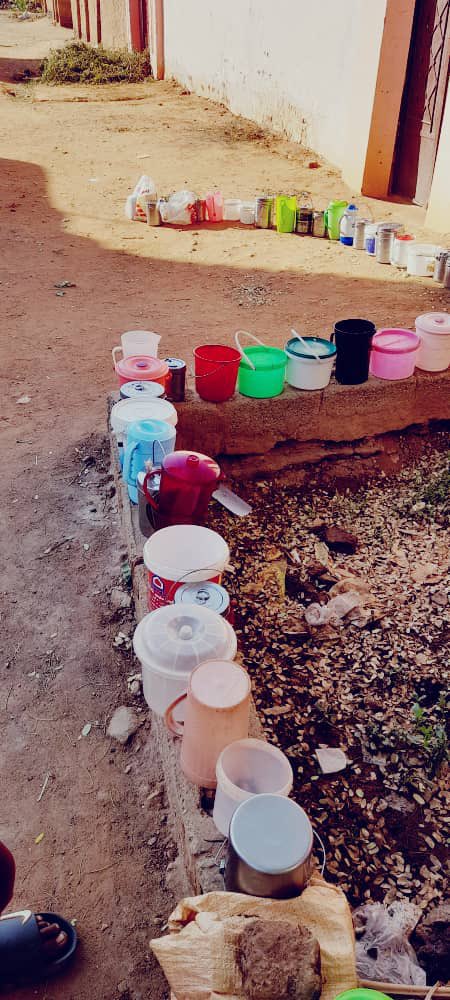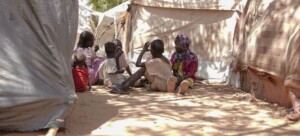Food kitchens halt in Khartoum North as people die of hunger

A community food kitchen in Maygoma, Khartoum North (Photo: @aboubker_ via X)
The Khartoum North Emergency Room has announced the suspension of all community kitchens operating in the city and multiple deaths in Khartoum state due to hunger in the last few weeks.
Community kitchens were established in Khartoum, Khartoum North (Khartoum Bahri), and Omdurman after the war erupted in April last year, to distribute food free of charge to the people remaining in Khartoum.
These kitchens have been struggling to function since the communication blackout began nearly three weeks ago which caused the interruption of the flow of aid. The kitchens have also been unable to investigate emergency cases and provide specialised assistance to them.

According to the statement published yesterday, the scarcity of food supplies and the communications blackout means that the voluntary service is unable to continue.
The emergency room pointed out in a statement yesterday that the suspension of the work of these kitchens threatens hundreds of thousands of people trapped by the war in Khartoum Bahri with hunger.
“The lack of food has already led to many deaths in various neighbourhoods in Khartoum state,” the activists stated, and pledged “to strive in every way to restore the work and activities of the collective kitchens as soon as we have the means to do so.”
The statement called on the UN agencies working in Sudan, the International Committee of the Red Cross, and other humanitarian organisations “to take the current situation in Khartoum North seriously and urgently intervene to provide humanitarian relief,” in particular to areas besieged by the Rapid Support Forces (RSF).
A group of more than 55 UN experts stated on February 5 that “about 17.7 million people across the country, representing 37 per cent of the population, face acute hunger.” It is reportedly the worst hunger level ever recorded during the harvest season, with the risk of famine very high.
Sudan is facing one of the fastest unfolding crises globally with about 25 million people, including over 14 million children, of whom three million under five, suffer from acute malnutrition, in dire need of humanitarian assistance and support.
The UN Office for the Coordination of Humanitarian Affairs (OCHA) in Sudan said in its report four days ago that the ongoing conflict between the Sudanese Armed Forces (SAF) and the paramilitary RSF has led to the country being “in the throes of one of the world’s most rapidly evolving crises.”











 and then
and then